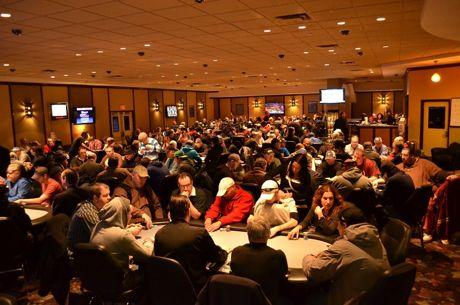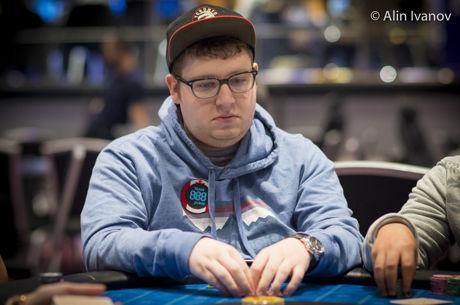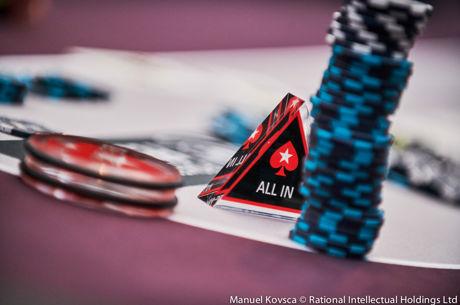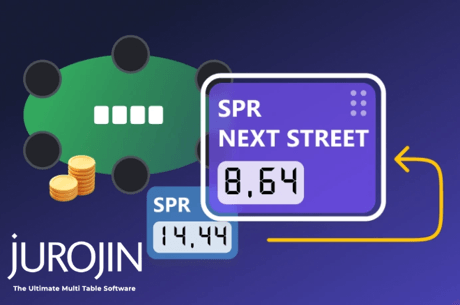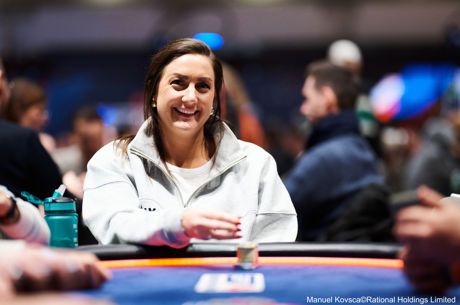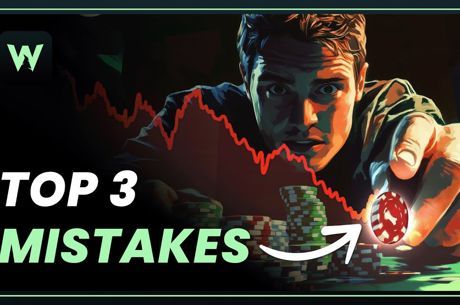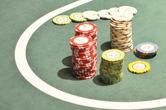More or Less: What Really Matters at the Poker Table?
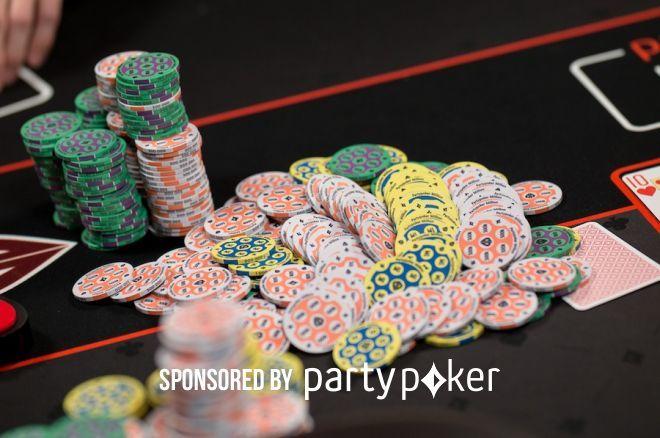
Poker players care about a lot of things when at the tables — some important, some less so. After thinking over some of the things that tend to grab poker players' attention and focus while playing, I've compiled a list of 20 of them below, noting beside each whether they're less important or more important than most players seem to think.
Some of these judgments may seem obvious to you. With others you may disagree. Read on and consider which things matter more and which matter less at the poker table.
1. The high hand promotion — Less
Many players care a lot about the high hand promotion. They point out that on Mondays the house pays $700 every 30 minutes to the highest hand, and they lament that another place just cut its promotion to $100 every hour.
But the chances that you are going to hit the high hand is relatively tiny, returning to you on average no more than has already been deducted from hands you've won. Still, players irrationally flock to games with large promotional prizes, mindlessly paying the $1, $2, or even $3 a hand vig to fund them.
2. The high hand promotion drop — More
The fact is that drop of $1, $2, or $3 — in addition to the house rake — can have an enormously corrosive affect on the good player's bottom line. Yet most players don't seem to care much about it at all. They should. It is an insidious tax that goes from the skilled to the lucky.
3. How many hands other players are winning — Less
Players frequently lament how players on either side of them, or on the opposite end of the table, have been winning more than their "fair share" of the hands. Who cares? In fact, the players who win the highest percentage of hands can sometimes be losing players in the long run, as they see far too many hands to begin with.
4. How aggressive the person on either side of their seat is — More
The aggressiveness of your opponents, especially those sitting on either side of you, is extremely important. You need to be highly aware of the raising standards of the player on your left and right in order to maximize your winnings and minimize your losses.
5. Changing the deck — Less
Many players seem to be very concerned with how long it has been since they had a good quality starting hand. They seek to change the deck to change their luck. This is sheer nonsense, as the shuffled deck has no memory and is surely no more or less likely to affect the luck of their future cards.
6. Whether a player asks for a deck change — More
Meanwhile, players who ask for a deck changes probably have some degree of irrationality in their play. This is exploitable by determining what and when they think they are running good or running bad.
7. How big the bad beat jackpot is — Less
It really doesn't matter how big the jackpot is, as hitting it is such a remote possibility.
8. Whether players at your table care about the bad beat jackpot — More
What matters is how the bad beat jackpot affects the play of other people. Does it attract gamblers who are bad poker players? Do players stay longer into the hand with two suited connectors and pairs, hoping to be on the losing end of a bad beat? That matters a whole lot.
9. Whether you're running good or bad — Less
You cannot divine your future hands by how you have done up until the present. The two are completely unrelated, and therefore not really worth worrying about.
10. Whether you appear lucky — More
Your image in the minds of your opponents is extremely important. It may or may not be related to how you are actually doing. If you've been losing all night, but recently won a couple of hands and appear lucky to some of your opponents, it's that appearance of being lucky that matters, not the fact that you've had a terrible session.
11. That another player at the table got lucky on the river and just won a huge pot — Less
Many players seem to care a lot about how others are doing. But whether some guy just got lucky or not has no bearing on your future hands and so isn't that important.
12. That the lucky player is now stacking his chips and just raised — More
Players who are in the midst of stacking chips — especially the bad or mediocre opponents you are likely to face in a typical $1/$2 NL game — are generally unlikely to enter pots unless they are really strong. So if he's betting or raising as he's stacking his chips, that's generally going to be an indicator of a very strong hand.
13. Whether another player has a really deep stack — Less
Some cash game players are very concerned about an opponent with an inordinately large stack, thinking that their deep opponent is likely to use that stack to try to "run over the table." But often this doesn't matter as much as players think. Having a huge stack gives a player no advantage he wouldn't have by having a stack that is only as large as the largest stack on the table.
14. That the guy two to your left, on the button, is about to leave for dinner — More
Players who are about to leave the table are generally less likely to bet or raise without an extremely strong hand. Knowing that an opponent is thinking of leaving can often help you properly gauge the true strength of his hand, and is therefore important information.
15. That you started with aces and lost to a runner-runner flush — Less
Bad beats happen, and aren't really very important at all. How you react to them is important, though.
16. That the guy who beat you plays any two cards until the turn — More
Knowing that an opponent tends to call is extremely important because it can determine how you should play your hand — and whether you should encourage or discourage him to continue to play the same way in the future.
17. Looking like a professional poker player — Less
Your image is important. But your looking like a so-called pro may or may not have any effect on how your opponents play against you. In fact, if it makes them tighten up out of caution or fear it may potentially be a bad thing to do.
18. Making friends with the player on your left — More
A friendly player is often less likely to raise you once you have entered a pot. Hence, making friends with the player to your left can help you avoid aggression, letting you see more hands cheaply.
19. Being obnoxious in a way that can put opponents on tilt — Less
While it's often good for you to have a player who is playing with emotion rather than thought, being obnoxious can be a two-edged sword. Often doing so can sharpen the play of those who are being targeted, getting players to avoid you, or increase their aggression when such aggression makes sense for them, not you.
20. Controlling your emotions so you don't (or only rarely) tilt — More
Avoiding tilt is a critical skill that will save and make you money in the long run.
Ashley Adams has been playing poker for 50 years and writing about it since 2000. He is the author of hundreds of articles and two books, Winning 7-Card Stud (Kensington 2003) and Winning No-Limit Hold'em (Lighthouse 2012). He is also the host of poker radio show House of Cards. See www.houseofcardsradio.com for broadcast times, stations, and podcasts.
This strategy article by Ashley Adams for PokerNews is sponsored by partypoker.

